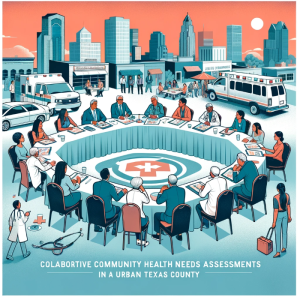
Foundational Expectations for Partnerships in Research: Building Trust and Inclusion
What can we learn from PCORI?
Patient-centered research is a cornerstone of equitable healthcare. But how do we ensure that the people who are most affected by these studies are involved meaningfully from the very start? The Patient-Centered Outcomes Research Institute (PCORI) has developed a set of six foundational expectations to guide researchers in building partnerships with patients, caregivers, and other stakeholders. Their ultimate goal is simple yet profound: to transform healthcare research into a truly inclusive, patient-centered process. Let’s delve into how these foundational expectations shape partnerships in clinical research and enhance outcomes.
1. Diversity and Representation
Ensuring research benefits communities starts with representation. PCORI emphasizes including partners, researchers, and stakeholders that truly reflect the diversity of those impacted by a given health issue. The diversity expectation asks key questions like:
- How well do the research team and partners reflect the communities affected?
- What steps have been taken to include perspectives historically excluded from research?
2. Early and Ongoing Engagement
Engaging partners early and consistently throughout the project is crucial for impactful research. They recommend involving partners from planning to dissemination to ensure their input informs each phase:
- How will partners be engaged in shaping the study design and outcomes?
- How have their contributions shaped the study’s priorities?
3. Dedicated Funds for Engagement and Partner Compensation
Partnerships need resources. PCORI recognizes that equitable engagement requires funding, not just for participation but also for addressing potential barriers. Compensation should reflect partners’ roles and contributions:
- Does the budget provide fair compensation for partners?
- Have their preferences shaped the compensation approach?
4. Building Capacity to Work as a Team
Successful research partnerships depend on the ability to work cohesively. PCORI highlights training, resources, and information to help teams thrive:
- How are partners’ strengths and skills identified and supported?
- How will barriers to participation be overcome with resources?
5. Meaningful Inclusion in Decision Making
Inclusion is more than a seat at the table. It requires actively sharing power and responsibilities throughout the study:
- How will decision-making be structured to include all partners?
- How will structures ensure that partners’ views influence the study?
6. Ongoing Review and Assessment of Engagement
Continuous learning helps partnerships remain strong. Regular assessment allows researchers and partners to identify what’s working and adjust approaches when needed:
- How will input be gathered to assess engagement effectiveness?
- Are there processes to address concerns respectfully and improve relationships?
Real-World Examples: Foundational Expectations in Action
Case 1: Building Trust and Relationships A project aiming to involve Spanish-speaking patients initially struggled due to distrust and negative past experiences with research. However, after six months of informal conversations and collaborative planning, clinic leaders agreed to partner. The team built trust by listening, adapting the study to patient needs, and ensuring regular compensation and support. The result was a more relevant study with a high level of patient input in planning, recruitment, and dissemination.
Case 2: Pivoting to Include Advisors When an advisory group initially felt disconnected from a study, feedback was gathered and the engagement approach was adjusted. This included longer meetings, clearer communication, and opportunities to attend core team meetings. Patient and caregiver partners helped shape recruitment strategies and survey development, resulting in a more inclusive process and higher response rates.
Conclusion
PCORI’s foundational expectations offer a practical roadmap for developing inclusive research partnerships. These principles empower researchers to prioritize inclusion, transparency, and collaboration. In doing so, we create a healthcare research landscape that respects patient voices and ultimately leads to more effective and equitable healthcare outcomes.
Discussion Questions:
- How can research teams better identify and address barriers that prevent historically excluded groups from participating in clinical research?
- In what ways can patient and community partners influence the design and implementation of health research to better address their communities’ specific needs?
Boost Your Public Health Knowledge – Subscribe and Make a Difference!
Open the door to important knowledge with “This Week in Public Health.” Each issue is full of insights into key research, community health successes, and advocacy tips. Don’t just learn about change – drive it. Subscribe for free and start having an impact with every issue!
About the Author
Jon Scaccia, with a Ph.D. in clinical-community psychology and a research fellowship at the US Department of Health and Human Services with expertise in public health systems and quality programs. He specializes in implementing innovative, data-informed strategies to enhance community health and development. Jon helped develop the R=MC² readiness model, which aids organizations in effectively navigating change.



